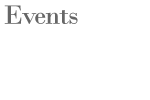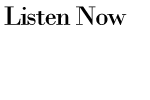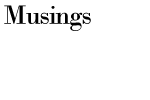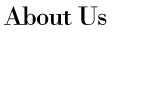Words to Sing the World Alive comes to the wonderful Adelaide Writers Week in a free event on Saturday 1 March.
Anita Heiss, Cheryl Leavy, Thomas Mayo and Jared Thomas share words that are significant and essential to them. Discover words that evoke the connection of fathers and sons, of creation and sovereignty, of trust and power – words that sing our world alive.
Pioneer Women's Memorial Garden, North Stage. Free!
Find out more at the AWW website:
https://www.adelaidefestival.com.au/events/2025-writers-week/words-to-sing-the-world-alive/
Join us as we explore the languages of Australia’s first peoples, against the backdrop of the exhibition, Songlines: Tracking the Seven Sisters, at the National Museum of Australia, Canberra.
Journey with our speakers, Sarah Burr, Paul Collis, Lizzie Ellis and Nardi Simpson, as they introduce and define favourite words in language, then discuss why these word are precious and defy translation into English.
Bir’yun, for example, is a Yolgnu word which denotes qualities of sparkle, glitter and shine. It is sometimes used by artists nearing the completion of a bark painting, when suddenly the energy of the ancestors comes alive on the bark – and it becomes bir’yun.
Words can carry so much more than a single meaning. They can carry knowledge, story, culture and a way of being with the world.
Presented in partnership with the National Museum of Australia.
Bookings via the museum site.
Image: Montage photographs by Sarah Kenderdine, Peter Morse and Paul Bourke. Seven Sisters rock art with permission of Walinynga (Cave Hill) custodians.
Bir'yun is a Yolngu word denoting qualities of sparkle, glitter and shine. The word is sometimes used by artists when they are nearing completion of bark paintings. Suddenly the energy of the ancestors comes alive on the bark – and the painting becomes bir'yun.
To mark the announcement of the winner of the Victorian Premier’s Literary Award for Indigenous Writing, join us for a discussion of the intricacy and potency of unique words from the languages of Australia’s first peoples.
Daniel Browning, Bruce Pascoe and Jessie Lloyd will introduce and define a favourite word in language, then discuss why this word is precious and how it defies English translation. We’ll also explore the power these words have to express different types of knowledge and distinctive ways of making sense of the world.
Presented in partnership with the Wheeler Centre for Books, Writing & Ideas.
This event is free, but bookings are essential.
As part of the 2016 Melbourne Jewish Writers Festival, we're pleased to present another iteration of The Necessary Poet.
Many have poets we enjoy. But there can be poets who change us, or to whom we return repeatedly, or who we associate with a particular life moment. Discover the essential poets of our distinguished readers: Andrea Goldsmith, Evelyn Krape, Bram Presser, Alex Skovron and Robert Richter.
Hear hymns of mourning from Czech prophet Georg Langer for his friend and unrequited love, Franz Kafka; reacquaint yourself with Ginsberg’s Howl; and experience Melbourne Cup as reflected by refugee and seeker of Jewish homelands Melech Ravitch.
From Poland, the Czech Republic, Australia and the US, from the Jewish canon to fresh names, from Israel to the streets of Melbourne, this will be an hour of language, personal stories and haunting sound.
Dante’s Divine Comedy of 1300s Italy and present day Australia have much in common: a divisive political world, greed and personal corruption, but also souls lost in a dark wood. Using Dante’s epic poem as a prompt, some of our most distinguished poets and writers present especially commissioned works to show us how Purgatorio pulses through our lives.
Come and hear Chris Wallace-Crabbe, Maria Tumarkin, Samuel Wagan Watson, John Clarke, Margo Lanagan, Emily Ballou, Jennifer Maiden and Sunil Badami mark a path through good and evil, corruption and virtue.
This project has been assisted by the Australian Government through the Australia Council, its arts funding and advisory body.
Poetry is sometimes assumed to be of marginal importance. Yet in many lives it has provided a life-changing insight, or a source of sustenance over many years. Public memorials and ceremonies often rely on poetry to give the occasion an added, special dimension. So it seems poetry is indeed necessary. Come along and hear six remarkable individuals – Martha Nussbaum. Germaine Greer, John Wolseley, Omar Musa, Melissa Cranenburgh and Farideh Karaji-Bani – read and talk about the poetry necessary in their lives.
Bookings: mwf.com.au / 03 9999 1199
Two writers who challenge the official truth of our times: this is the focus of our 2011 Melbourne Writers Festival event, a pairing of Eliot Weinberger from the USA and Bei Dao from China.
Eliot Weinberger’s ‘What I Heard About Iraq’ was named THE anti-war classic of the Iraq War. Bei Dao, one of China’s foremost poets, has lived in exile since 1989 for his pro-democracy stance and his unique personal voice. He has been nominated repeatedly for the Nobel Prize in Literature.
The two writers are friends as well as colleagues, and the event features readings of their powerful work, as well as a conversation between them, drawing on the themes of personal freedom, public responsibility and the power of poetic words.
To celebrate the post-humous publication of Dorothy Porter's Love Poems we bring together a night of readings to reveal the many faces of love.
Jealousy, intrigue, conflicting needs: love has always been an arena of intense visceral emotion, perfect for the language of poetry. Poets through the ages have explored the tension between the self and the intimate other.
Rebellion. A spirit in us that takes many forms. Some might argue that now is a moment to rediscover our rebellious voices.
Poems often speak out against injustice or pretension or complacency. Or they may point to a hidden censorship within us. Or privately cry out against the passing of time or death – experiences no human can change.
A remarkable line up will read their favourite poems of rebellion on September 5 as part of the Melbourne Writers Festival 2010.
Ma Jian from China, August Kleinzahler from the USA and Fethiye Cetin from Turkey will join three distinguished Australians, Archie Roach, Amanda Lohrey and Jane Clifton. From different backgrounds and parts of the world they will gather on one stage in the Capitol Theatre.
What will they read? Which poems will they choose? Come along on and hear the many voices of rebellion.
A standing-room only audience was taken on a tour of Szymborska’s work: the philosophic, the playful, the political, the pensive. Performed in Polish and in English the hour allowed the great range of Szymborska’s to be presented. The audience response told all: sometimes the room rippled with laughter at poems such as ‘Conversation with a Stone’ or ‘A Contribution to Statistics’; at other times a total silence fell before poems like ‘Photograph from September 11’ or ‘Tortures’.
The pleasure and pain we experience often are vividly evoked in poetry. And so the hour took on many moods as each author read his or her favourites: the body in sweet melancholy, the body fired by indignation, the body sated after love, and many more. The session ended with a collective reading of Walt Whitman’s great hymn to the body, ‘Leaves of Grass’.
Nearly 700 admirers of Akhmatova’s work filled St Paul’s Cathedral, listening to the once-banned poems, read in both Russian and English. Over the hour the story of Anna Akhmatova’s achievement built a cumulative power. A woman born in testing times. Akhmatova continued to write poems through the Russian Revolution, the Civil War, the rise of Stalin, the Terror, and WW II, even when many around her—including her closest family—were arrested, executed, exiled in camps or else fled the country. The beauty of her personal poems sounded alongside her many historic poems including a selected reading from ‘Requiem’.
2007 marked one hundred years since WH Auden’s birth, a moment to honour his work and its impact. When given the chance to read an Auden poem, numerous authors of crime, history, plays, fiction, humour and human rights were keen to read a favourite, not surprising when so many of his poems like ‘Refugee Blues’ or ‘September 1 1939’ are still profoundly relevant today. The readers presented the full range of Auden’s work—love poetry, social comment, light-hearted verse, and historic record. They read from the balcony, the body of the auditorium and the aisles; and finally assembled on stage for a collective reading of the epic ‘Spain’.

















